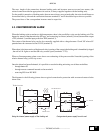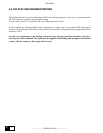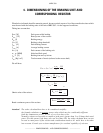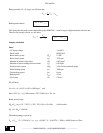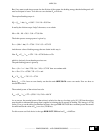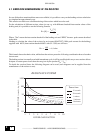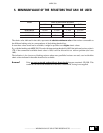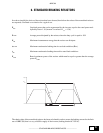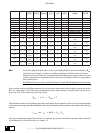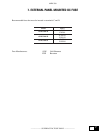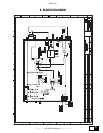
GEI-100350A
—————— STANDARD BRAKING RESISTANCES ——————
6
2
AV300 BU300 P
OVL
[KW]
P
AVBR
[KW]
E
BR
[Kwsec]
t
OVLBR
[sec]
t
BR
[sec]
P
NBR
[KW]
RESISTANCES
MARK
OHMIC
VALU E
3003 …-20 4 0.5 8.8 5 7 0.5 BRR 500T 100R 100
Ω
3005 …-20 6.8 0.7 14 5 7 0.8 BRR 800T 68R 68
Ω
3011 …-20 15 1.5 44 3.5 5 1.3 BRR 1K3T 31R 31
Ω
3015 …-20 20 2 80 8 11 4 BDR 4K0T 23R 23
Ω
3022 ... -50 30 3 120 6 8 4 BDR 4K0T 15R4 15.4
Ω
3030 …-50 40 4 70 4 5.5 4 BDR 4K0T 11R6 11.6
Ω
3037 …-50 50 5 180 7.5 10 8 BDR 8K0T 9R2 9.2
Ω
3045 …-50 60 6 220 6 8 8 BDR 8K0T 7R7 7.7
Ω
3055 …-85 75 7.5 140 4.5 6 8 BDR 8K0T 6R2 6.2
Ω
3075 …-85 100 10 2 x 180 7.5 10 2 x 8
2 x BDR 8K0T
9R2
9.2
Ω
3090 2 x …-50 120 12 2 x 220 6 8 2 x 8
2 x BDR 8K0T
7R7
7.7
Ω
3110 2 x …-85 150 15 2 x 140 4.5 6 2 x 8
2 x BDR 8K0T
6R2
6.2
Ω
3132 2 x …-85 180 18 2 x 350 6 8 2 x 12
2 x BDR 12KT
5R1
5.1
Ω
3160 2 x …-85
180 *
(218)
18 2 x 350 6 8 2 x 12
2 x BDR 12KT
5R1
5.1
Ω
3250 3 x …-85
272 *
(340)
27.2 3 x 350 6 8 3 x 12
3 x BDR 12KT
5R1
5.1
Ω
3315 3 x …-85
272 *
(340)
27.2 3 x 350 6 8 3 x 12
3 x BDR 12KT
5R1
5.1
Ω
bu0055
NOTE: the power ratings indicated with (*) have a value lightly below to the one calculated for P
OVL
(value between brackets) in order to avoid the introduction of further values of resistors.
Furthermore it must be take into consideration that with high power ratings as these ones, the
dynamic performances are generally lower and could even require the use of a regenerative
unit on the DC bus.
For 3250 and 3315 sizes, the use of the Line Regen Converter RS-300 should be more convenient.
Every resistor used having different features by the ones above mentioned, must be rated to support the power
P
OVL
for a time equal to 1/10 of the one of an hypothetical cycle, where after the overload follows a period at zero
power for 9/10 of the whole time (10% duty cycle).
P
OVL
x 0.1 T = P
AVBR
x T
The maximum duration of the braking time (and consequently the total duration of the cycle) will be determined
by the maximum energy pulse E
BR
admitted for the resistor during the braking moment, according to the following
relation:
t
OVLBR
and t
BR
= 0.1 T = E
BR
/ P
OVL
Since the working temperature of the resistor is not known, the resistor itself must be provided with a normally
closed thermal dry contact (Klixon) see chapter 3.5.



